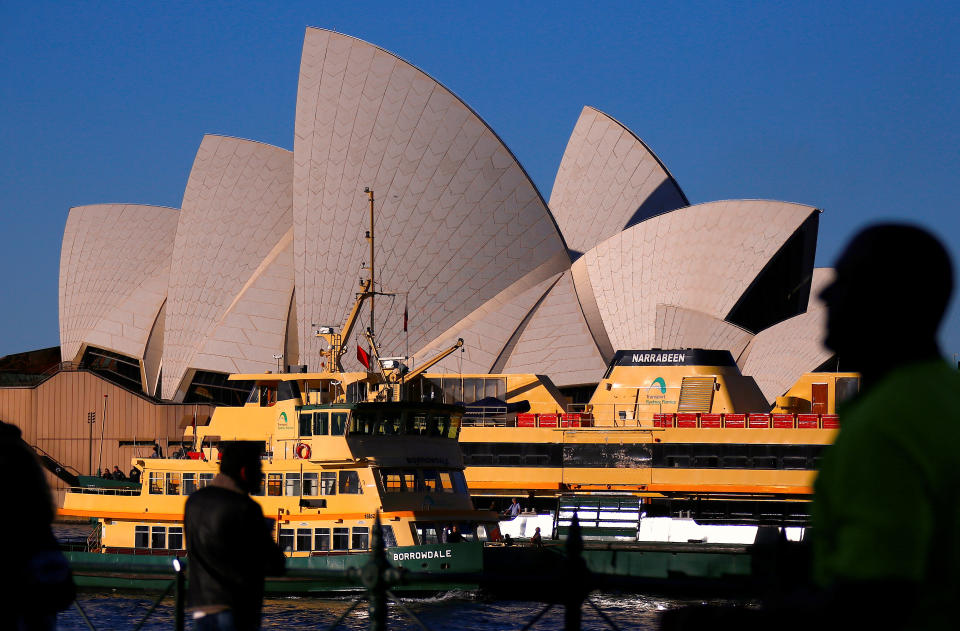How Trump's trade war plays in Australia
With interest rates at record lows and hardly a whiff of inflation, Australia’s former Treasurer, Peter Costello, says you would think his country would be in a deep recession. And yet the Australian economy, which hasn’t endured a recession in 29 years, chugs along.
“These are abnormal times,” Costello told the audience at Yahoo Finance’s All Markets Summit in Sydney on Thursday. “Not normal times.”
Costello, who served as Treasurer (akin to the U.S. Treasury Secretary) from 1996 to 2007 and is currently chairman of the $130 billion Australian Future Fund (the nation’s sovereign wealth fund), joined a number of prominent business leaders including Paul Scurrah, CEO of airline Virgin Australia and economist Stephen Koukoulas, who was a senior economic advisor to former Australian Prime Minister Julia Gillard, at the Summit, the first to be held outside the U.S.
Top of mind was not only the Australian economy but also the outlook for the Asia Pacific region and the global economy as well with trade being a focal point.
For years, Asian countries have benefitted not just from increased trade with both China and the U.S., but also from the growing trade and cooperation between the two giant countries themselves. The spillover effect from a harmonious U.S./China relationship advantaged South Korea, Singapore and Australia and the others in myriad ways big and small. Not only was this notion that US and China interdependence would grow and deepen taken for granted, it was rightfully seen as a singular underpinning of the region.
Cue the screeching tires. Throw the bus in reverse.
What should have been fairly obvious as a possibility to anyone who thought about it, is, for now at least, happening. China and the U.S. are decoupling and as a result the APAC economies are feeling the effect. Trade is down, GDP growth is down and so are a host of other indicators.

In Australia, GDP growth dropped from 2.8% last year to a current rate of 1.9%. The Reserve Bank of Australia, the country’s central bank, has cut rates twice over the summer to spur growth, and even with Aussie ten year bonds yielding just north of 1%, is seen poised to do so again next week. Peter Costello doesn’t think more rate cuts will make much of a difference.
“Will another quarter of a percent rate cut make the homeowner get a mortgage or a business borrow more,” he asked. “Maybe on the margin, but it won’t matter much.”
Koukoulas disagreed saying the central bank needed to be more aggressive in cutting. And he said the government—headed by Prime Minister Scott Morrison—which is currently running a budget surplus needed to open up its purse strings and spend on infrastructure to spur growth. This tack elicited groans from Costello.
“The government is always ready to spend money. Your money,” he said pointing at the audience, arguing also that states in Australia were much better at infrastructure projects than the national government. Instead, Costello said, the government should focus on structural reform, like fixing the tax code and deregulation.
“Rate cuts are easy,” Costello said. The country needs to look at the tougher fixes.
An end to the trade war between the U.S. and China wouldn’t hurt either.
-
Andy Serwer is editor-in-chief of Yahoo Finance. Follow him on Twitter: @serwer.
Read more:
Facebook's Zuckerberg and Sandberg are this involved with the company's content issues
Negative interest rates are coming and they are downright terrifying
Follow Yahoo Finance on Twitter, Facebook, Instagram, Flipboard, SmartNews, LinkedIn, YouTube, and reddit.

